SG man “puts car to sleep” in JB petrol station, rocking it to get more petrol! Turns out, it’s all for nothing and may cost you more in repairs! Save your energy, folks! 😂🚗
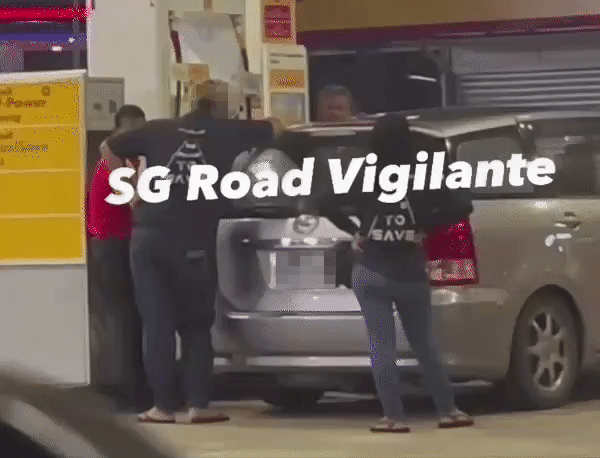
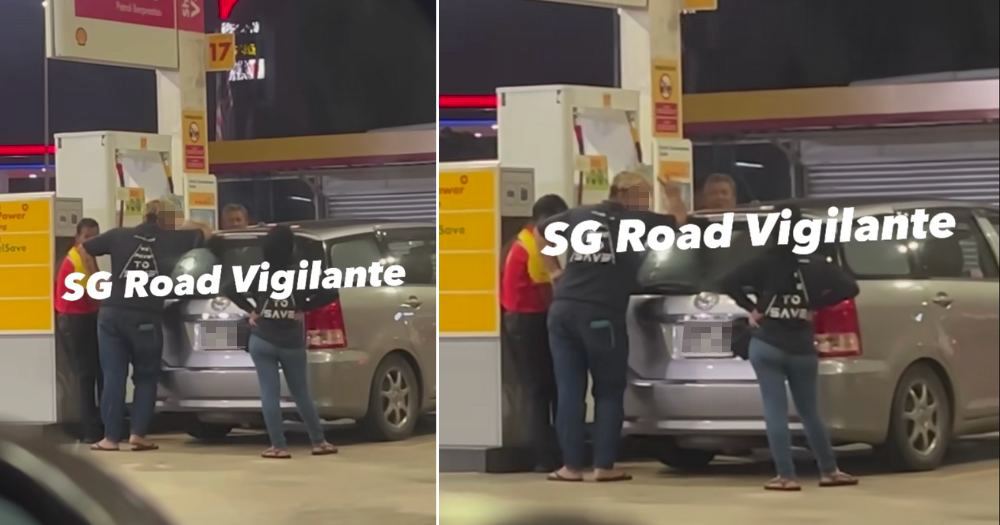
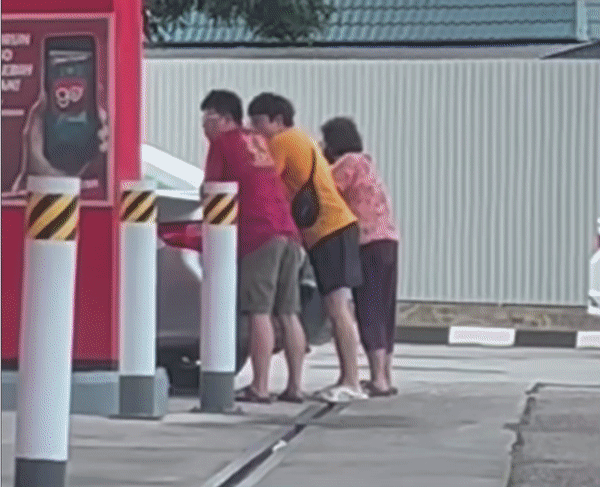

Discover our Singapore News section, delivering real-time and comprehensive coverage of local news in Singapore. Stay informed on politics, economy, society, culture, and more, as we dive deep into the Lion City’s developments.
SG man “puts car to sleep” in JB petrol station, rocking it to get more petrol! Turns out, it’s all for nothing and may cost you more in repairs! Save your energy, folks! 😂🚗




新加坡男子在新山加油站“哄车入睡”,费力摇晃车子,企图加更多油。结果发现,这招并没用,反而可能让你花更多钱修车!大家还是省省力气吧!😂🚗




Opposition leader and Workers’ Party Secretary-General Pritam Singh proposed on February 27th in Parliament that English proficiency tests be made one of the selection criteria for new immigrants to Singapore, sparking widespread attention and heated discussion. Lianhe Zaobao interviewed Dr. Mathew Mathews, head of the Social Research Room at the Institute of Policy Studies at the Lee Kuan Yew School of Public Policy, National University of Singapore, Lianhe Zaobao’s guest commentator Yan Mengda, and conducted street interviews with Singaporeans, permanent residents, foreign workers with work visas, and foreigners with long-term visit passes to hear their views on the proposal.
大家好,我在义顺拍到了一段住户疯狂扔鞋子的视频。这种行为不仅危险,还破坏了我们的社区环境。

尽管扔东西前楼下确实没人,但这并不能消除潜在危险。我们应该关注这个问题,确保社区安全。
我呼吁警察和社区管理部门加强监管,一起让义顺变得更美好、安全。
Eh heng ah, I kena capture video of this siao lang in Yishun throwing shoe downstairs like nobody’s business. So dangerous lah, spoil our kampung spirit also.

Although she check no people downstairs before throw, but still got potential danger mah. We must kaypoh abit, make sure our community safe and sound.
I hope mata and town council come and do something about this, together we make Yishun more shiok and safe place.
The Singapore government is strengthening its assurance and support packages and permanent Goods and Services Tax (GST) voucher scheme in the 2023 budget to provide more cash assistance to Singaporeans to ease economic pressures from inflation and a hike in consumption tax. These additional subsidies will help lower-income and middle-income households offset the extra expenses they face due to inflation and the increase in consumption tax.
If you are a Singaporean aged 21 and above, with an estimated income of not more than $100,000 and owning not more than one property, you can receive up to $1,350 in subsidies from the end of 2022 to the end of 2026. For Singaporeans with an estimated income of not more than $34,000, they can receive up to $2,250 in subsidies.

In addition, the government will enhance the permanent GST voucher scheme. If you are a Singaporean aged 21 and above, with an estimated income of not more than $34,000 and owning not more than one property, and the annual value of your residence does not exceed $21,000, you will receive GSTV-Cash. The cash subsidy will increase from $250 in 2022 to $350 in 2023, and to $450 in 2024. If the annual value of your property does not exceed $13,000, the cash subsidy you can receive will increase from $500 in 2022 to $700 in 2023, and to $850 in 2024. The government will start distributing the 2023 vouchers from August this year.
Furthermore, Singaporeans aged 21 and above, with an estimated income of not more than $100,000 and owning not more than one property, will receive a one-time special cash assistance of $200 to $400 in June this year. Those aged 55 and above, with an estimated income of not more than $34,000 and owning not more than one property, and the annual value of their residence does not exceed $34,000, will also receive a senior citizen bonus of $200 to $300 in June.

In addition, each household can receive $300 worth of community vouchers in January 2024, and eligible households will receive double the amount of their utilities rebates this year, along with the rebates they receive in January, for a total of up to $760.
Overall, the government’s cash assistance policies will effectively help Singaporeans ease the economic pressures from inflation and the hike in consumption tax, especially for lower-income and middle-income households. These subsidies will improve their quality of life and reduce their economic burdens. The government’s efforts aim to ensure economic recovery and promote social stability.
政府将在2023年财政预算案中加强定心与援助配套和永久性消费税补助券计划,为新加坡人提供更多的现金补助以缓解经济压力。这些额外补助将帮助较低收入家庭和中等收入家庭抵消因通货膨胀和消费税上涨所面对的额外开销。
如果你是年满21岁的新加坡人,估计收入不超过10万元且拥有不超过一套房地产,你可以在2022年底至2026年底获得高达1350元的补贴。而对于收入不超过3万4000元的新加坡人,最多可获得2250元的补贴。

除此之外,政府还将强化永久性消费税补助券计划,如果你是年满21岁的新加坡人,估计收入不超过3万4000元且拥有不超过一套房地产,而住房年值不超过2万1000元,你将获得现金补助(GSTV-Cash)。从2022年的250元增至2023年的350元,2024年将增至450元。如果你的房地产年值不超过1万3000元,你可以获得的现金补助将从2022年的500元增至2023年的700元,2024年将增至850元。政府将从今年8月开始发放2023年的补助券。
此外,年满21岁、估计收入不超过10万元且拥有不超过一套房地产的新加坡人,将在今年6月获得一次性的生活费特别补助,补助金额为200元至400元不等。而对于年满55岁及以上、估计收入不超过3万4000元且拥有不超过一套房地产,而住房年值不超过3万4000元的新加坡人,也将在6月获得生活费乐龄花红,补助金额为200元至300元不等。
此外,每户家庭在2024年1月也可获得300元的社理会邻里购物券,并且符合条件的家庭在今年将获得多一倍的水电费回扣,连同1月所发放的回扣,总共多达760元。

总之,政府的现金补助政策将有力帮助新加坡人缓解因通货膨胀和消费税上涨所造成的经济压力,特别是对较低收入和中等收入家庭来说,这些补助将有助于改善他们的生活质量并减轻经济负担。政府的努力旨在确保经济复苏并促进社会稳定。
我国卫生部表示,截至3月26日,国内尚未发现XBB.1.16变异毒株病例。此外,全球范围内也没有证据表明XBB.1.16比之前发现的亚型变异毒株更具传染力和危险性。
过去两周,我国每周新增新冠病例超过一万例。印度《铸币报》(Mint)3月16日报道称,科学家认为新变异毒株XBB.1.16可能是导致当地近期病例激增的原因。该报道还指出,中国、新加坡、美国等多个国家都已检测到这种快速传播的变异病毒。
我国卫生部指出,在新加坡检测到的毒株为XBB亚型变异毒株。此系列的亚型变异毒株XBB.1.5和XBB.1.9分别于2022年12月下旬和2023年1月中旬首次在我国被检测出。
卫生部强调,新一轮感染不时发生,因此将持续关注国内疫情,并观察是否出现新的病毒变种,以免对医疗系统造成严重影响。卫生部表示,目前病例增加尚未给我国医疗系统带来压力。
新加坡国立大学杨潞龄医学院医学系教授淡马亚认为,近期病例激增可能与学校假期结束后学生们返回校园上课有关,导致发现更多人感染呼吸道症状。然而,淡马亚指出,与去年国内疫情高峰相比,目前的高峰并不算非常高。
此外,因呼吸道症状而就诊急诊科的人数并未像去年前几波疫情那样出现高峰。
鉴于医院病床使用率没有显著变化,淡马亚认为,对于过去几周新增病例激增的情况,无需过度担忧。
总结:近期我国新冠病例激增,但卫生部表示尚未发现XBB.1.16变异毒株病例,并强调目前病例增长未对医疗系统产生压力。专家认为,尽管近期病例增多,但相较于去年疫情高峰,当前状况并不算严重,因此无需过分担忧。
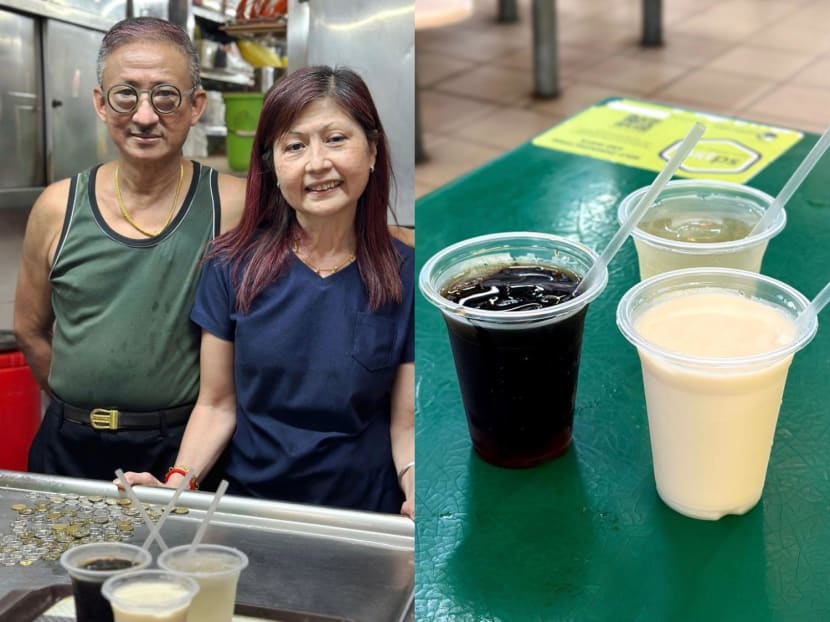
In today’s society, it’s hard to find an iced drink for under S$2 even at a coffee shop. However, in Kovan, there’s a hawker couple who sell soya bean milk, grass jelly, and bird’s nest drinks for just 30 cents a cup.
Husband-and-wife team Goh Kai Suah and Chua Choon Huay have been running their stall Sun Kee Drinks at Kovan 209 Market & Food Centre since 1984, for almost 40 years. Despite their low prices, their drinks are of decent quality and have earned them a loyal following of customers. Although they only operate from 6am to 1pm, they are usually almost sold out by noon, with customers who stop by to buy a drink appearing to know them well.

Goh and Chua have kept their prices constant for almost four decades, which is admirable considering inflation. Chua joked, “We are not working for a bungalow,” but candidly shared that they can survive if there are customers. They have a basic business principle of selling a high quantity at low prices, which seems to work well for them. Despite their low profit margin, they have a thriving business with queues that seem to never end on weekends.

Their drinks are priced at S$0.30 for a small-sized cup and S$0.50 for a larger cup, with bird’s nest drink being the only one that they make themselves, a process that involves boiling pandan leaves. Although the bird’s nest drink is diluted, it is still pandan-scented and refreshing. The soya bean milk is reasonably thick, and the grass jelly drink is also refreshing enough despite being slightly thinner in consistency than a similar beverage from other hawker stalls that charge more.
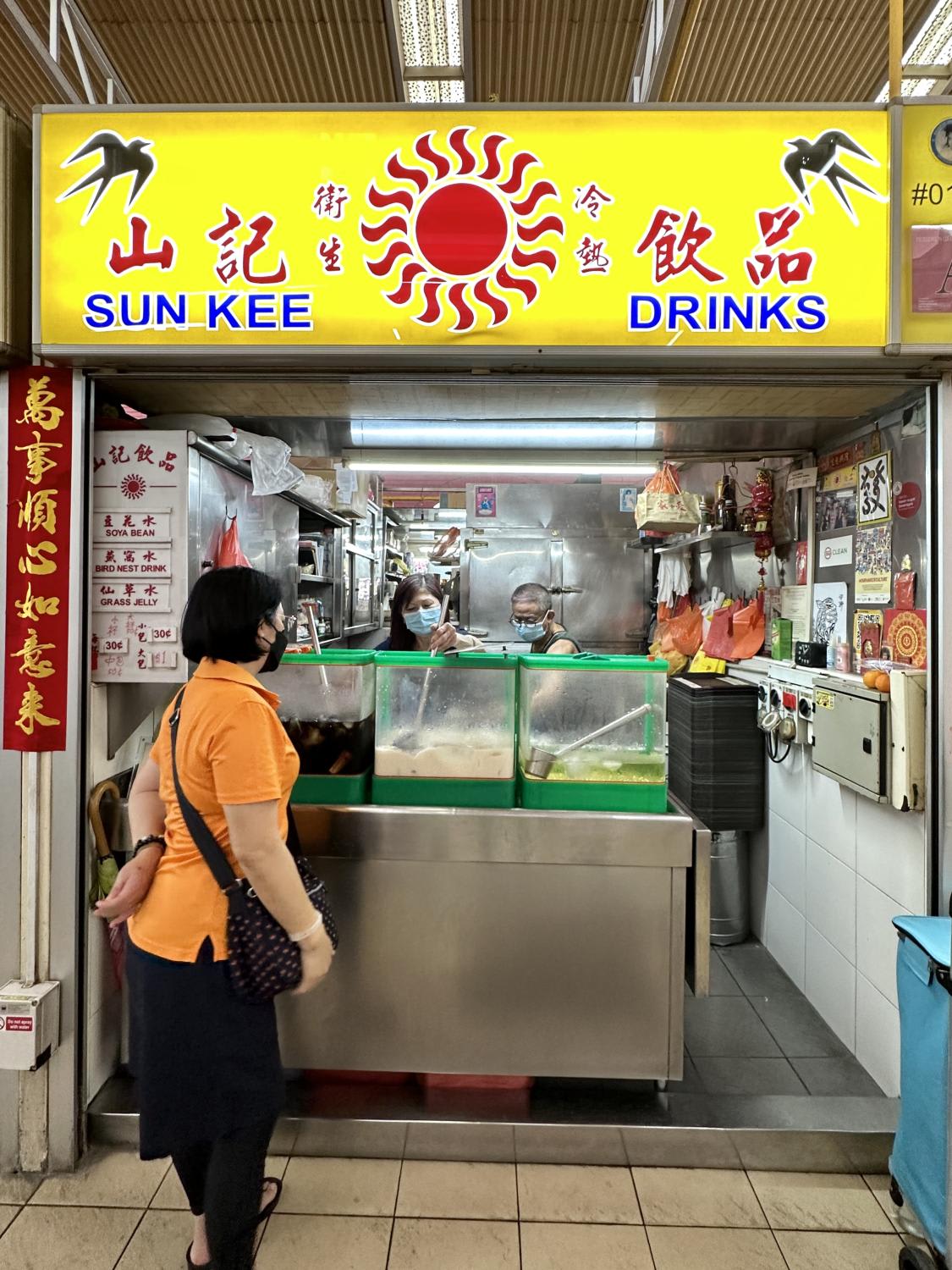
Despite the challenges of being a hawker, Goh and Chua have remained grateful and have not forgotten their humble beginnings. Goh’s father started the business in the 1950s as a pushcart along nearby Upper Serangoon Road, and Chua pointed out that it was much harder being a hawker back then. They feel fortunate to have it good now and have a thriving business that they’ve built over the years.